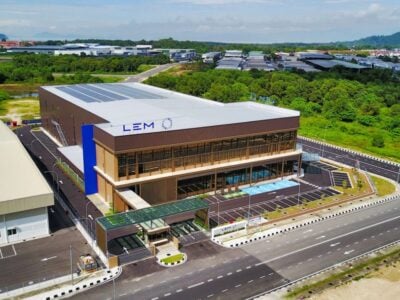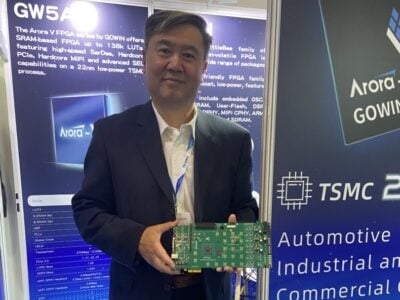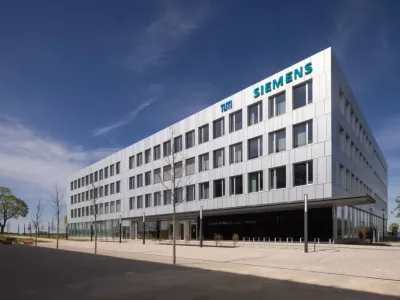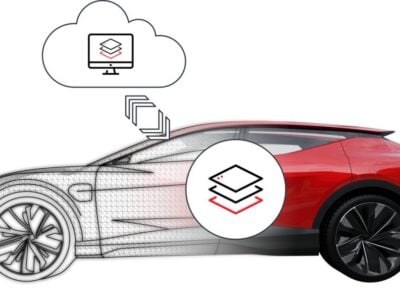
Startup pitch-fest opens Semicon Europa show
Organized by HighTech StartBahn – a startup support agency based in the Dresden region – 64 companies were selected to attend the two-day event and that has attracted a significant number of potential investors from across Europe and even from outside Europe. The 64 companies selected to pitch are looking to raise €378 million (about $420 million), according to the agency.
The agency, and the HighTech Venture Days, it has organized prides itself on focusing on hardware- and semiconductor-based companies and standing in opposition to the fashion for venture capital to move towards software, social media and e-commerce related applications. However, it is notable that with one or two exceptions many of the companies selected to pitch are also highly application specific, be it in the creation of medical systems, veterinarian systems, types of industrial sensors and monitoring.
Nonetheless, the hard engineering aspect of the ecosystem around Dresden and the companies invited to pitch was a clear reason to collocate the event with Semicon Europa. About 24 startups are presenting themselves to the world by occupying booth space in an Innovation Village area laid out within Semicon Europa.
Of the total 64 companies selected, 44 are based in Germany and 5 in France, and 2 come from each of Russia, Poland, Sweden and Israel. By age 15 of the companies are less than 5 years old while the remaining 49 are described as "growth companies" being 5 years or older.
Next: No shortage of demand for VC
Panel discussion
The pitching event was preceeded by a panel discussion staged for the press that endeavoured to shed light on the venture capital "problem" in Europe. Bettina Vosberg, chairwoman of HighTech StartBahn Netzwerk eV, set the tone by saying "the lack of VC is stifling business in Germany and in other European countries as well."
Pascal Vanluchene, founder of Begian venture capital firm Capital-E, expressed the problem in relation to his own history. He founded Capital-E in 2006 having previously been a researcher at the IMEC research institute in Leuven, Belgium and having seen that despite efforts to create startups their it had been hard to get funding. "It is very hard for private equity firms to get a return on early-stage funding, so perhaps other means of funding need to be found." He added that most of the US-based venture capital had "flown" to software and social media. But he said that often they don’t realize that semiconductor startups’ bad reputation is based on the extreme cost of digital design. "There is a lot that can be done in analog and mixed-signal," he said pointing out that small design teams and $100K mask sets can keep costs down.
Vanluchene’s conclusion was downbeat; that both the funding and the exit perspectives are poor in Europe.
But the panel had also included two entrepreneurs to share their points of view and best practice.
Jan Blochwitz-Nimoth had co-founded Novaled GmbH as a spin-off from the Technical University of Dresden to commercialize his PhD work on using doping with organic light emitting diodes. Novaled was sold to Samsung in 2013 for about a €260 million (about $290 million) after raising about $32.5 million in three rounds. Blochwitz-Nimoth is now chief scientific officer with Novaled which is operated as a wholly-owned subsidiary of Samsung.
Max Ruffo is founder and CEO of Terabee, one of the companies that came to Dresden to pitch. Terabee combines the use of drones with lightweight optical, infrared ranging sensors.
Next: Challenged from the floor
Ruffo explained that he had chosen to locate the company in France which provides good support to both entrepreneurs and to investors who get tax credits for money invested. He said: "There is not a lack of money in Europe but a lack of professional investment." He gave the example of potential investors in his company that only wanted to see the spreadsheets. "The team is 80 percent of the value of any startup." Ruffo said the difference between Europe and the United States was that in the US entrepreneurs and engineers are in the venture capital companies.
Blochwitz-Nimoth agreed to an extent when he said that one source of Novaled’s success was an angel investor who believed enthusiastically in the technology and served to draw other investors in. "Other regions’ conclusion is that we are innovative but it is not linked to capital. There does need to be an exit," he said.
However, when challenged from the floor to mention other 10X returns on European startups, similar to Novaled, that might serve to encourage venture capital back to hard engineering, the panel failed to name any.
Novaled is one "light-house" or beacon success story that shows it can be done and it may be that there will be more amongst the startups pitching here. One thing is clear the spirit of innovation is alive and well in Europe even if the venture capital scene remains undeveloped.
Related links and articles:
News articles:
The Silicon 60 v16.1: A tale of two Cs
EE Times Silicon 60: 2015’s Startups to Watch
Innovation village to gather over 30 European startups
 If you enjoyed this article, you will like the following ones: don't miss them by subscribing to :
eeNews on Google News
If you enjoyed this article, you will like the following ones: don't miss them by subscribing to :
eeNews on Google News




